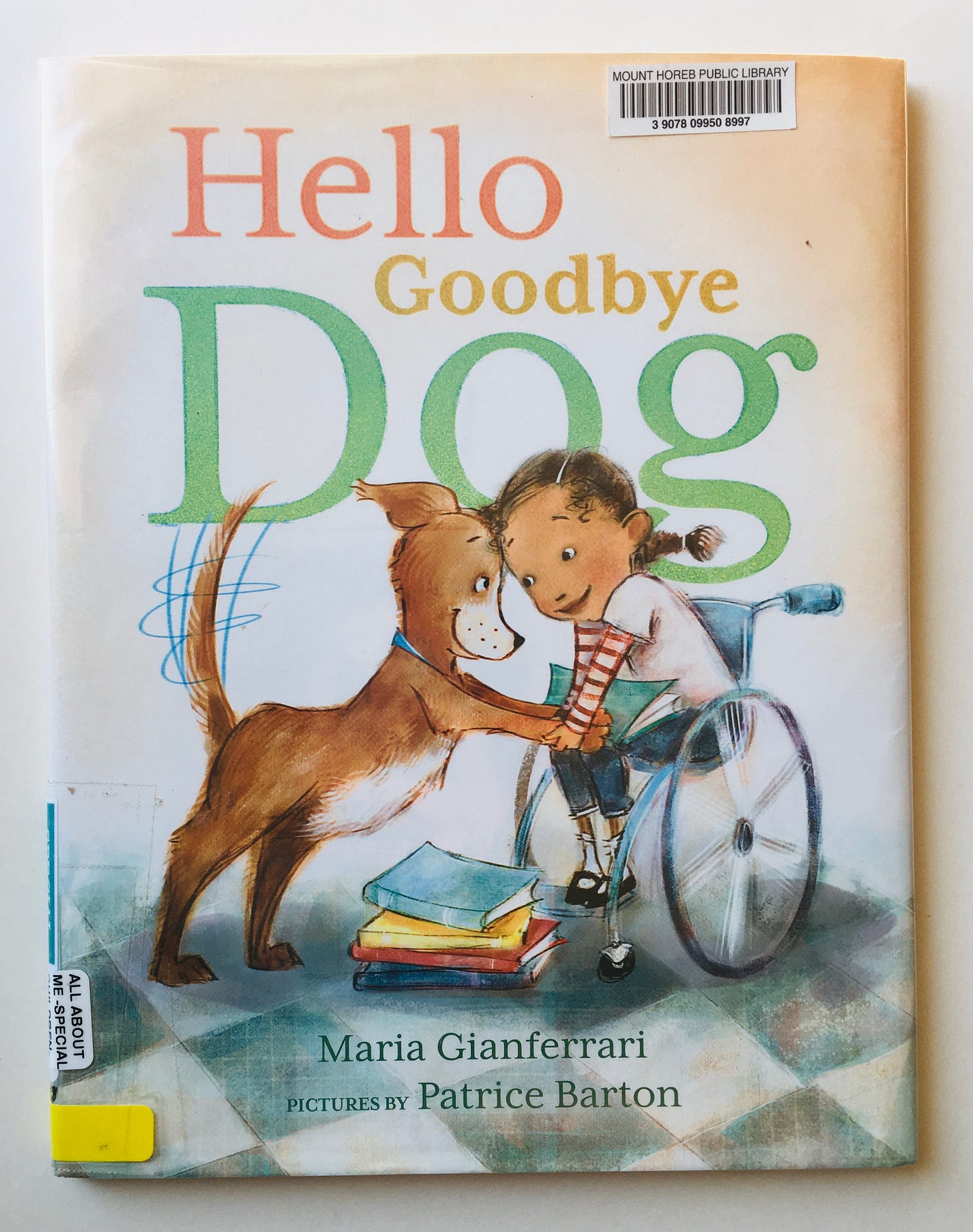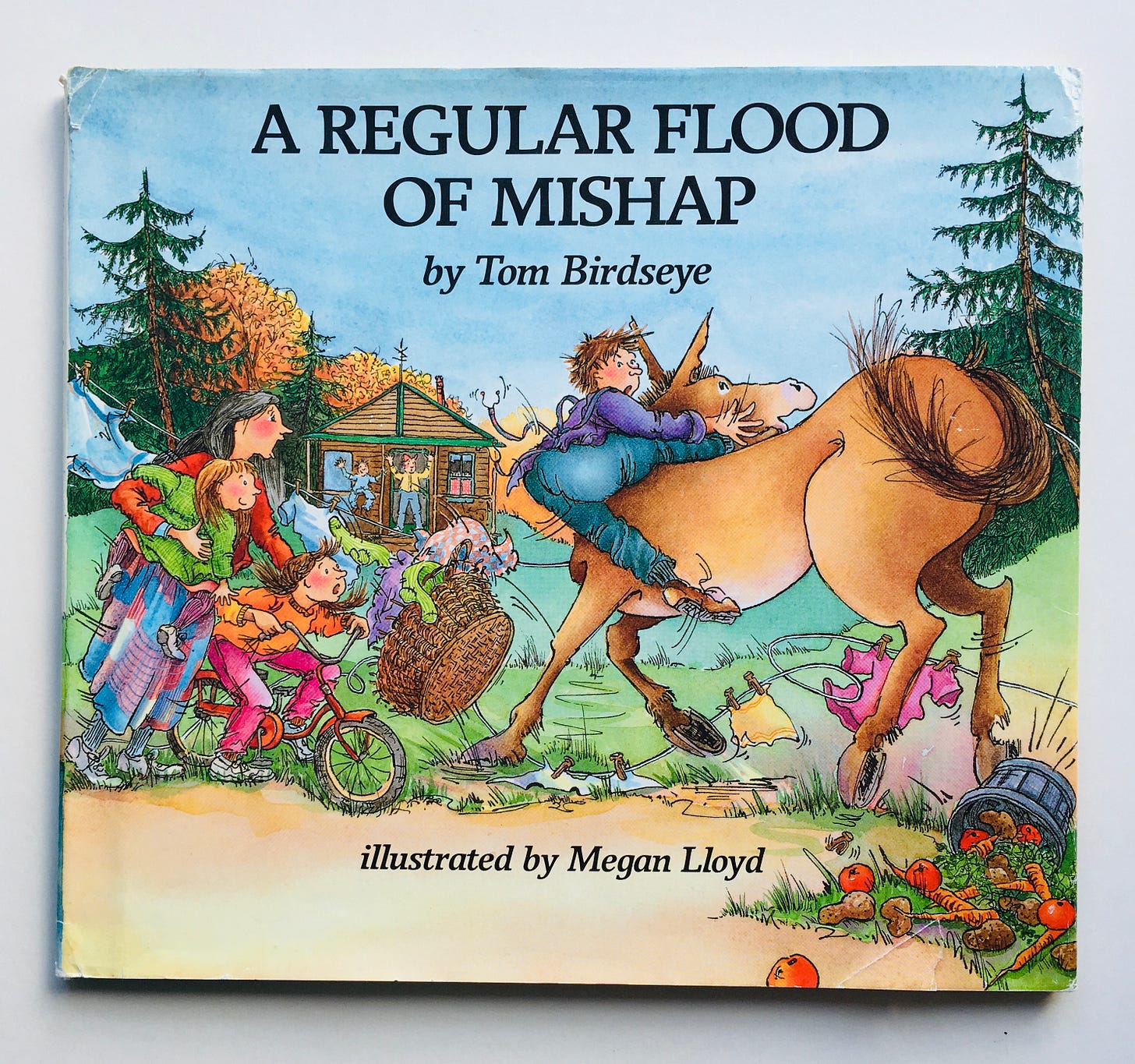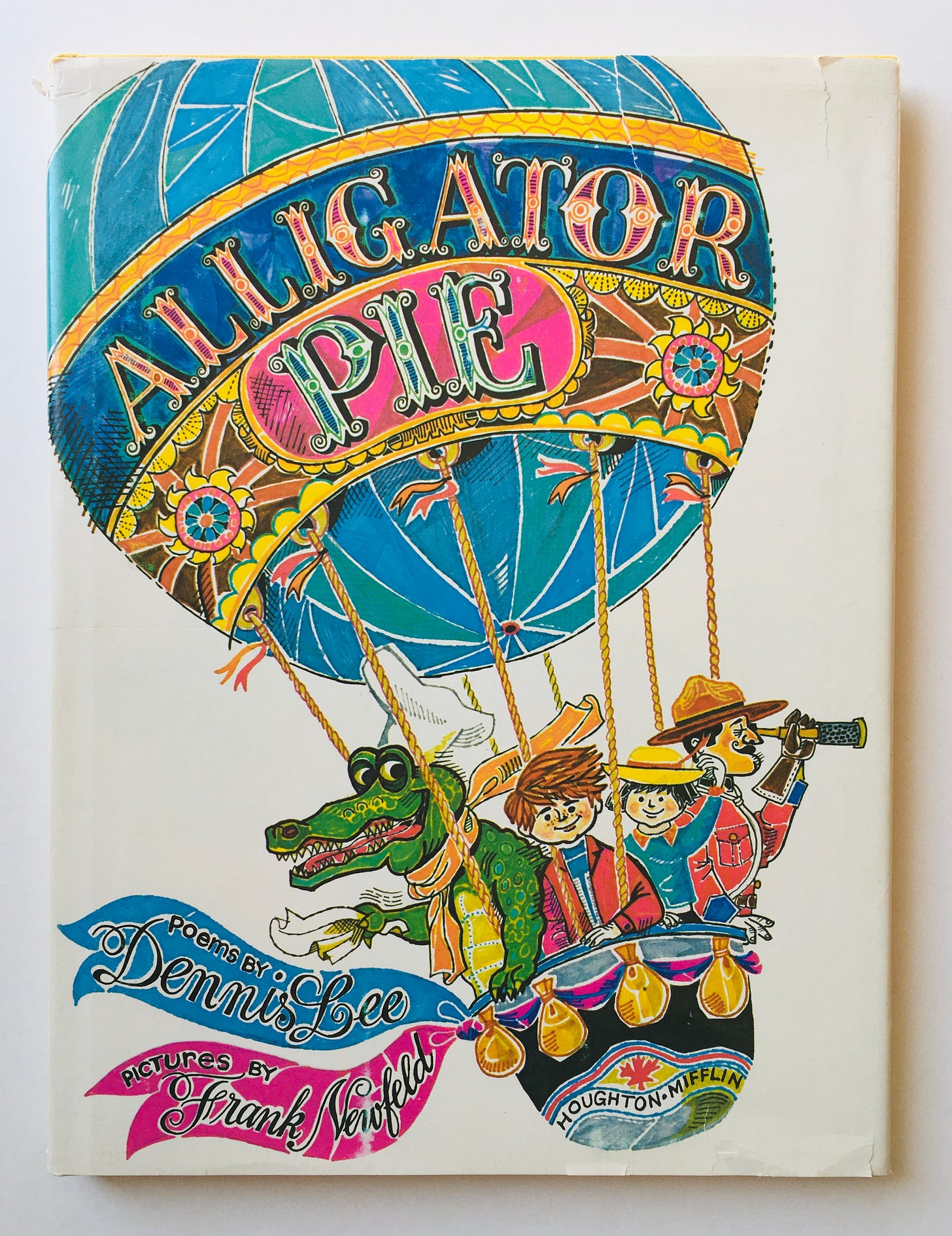Wolves, dogs, mishap, and alligators 🐊 (in that order, though I'm not sure alligators should ever be at the end of a line)
Can we read? No. 55
Hi there!
If you’re on my free subscriber list, you’ve missed some good stuff lately:
The October issue of (How) Can we read?, which was about choosing good books — how to hone your taste and steer your children toward quality picks of their own
A fun little mini issue on soup books
A reader question (and my answer) about poetry — the nitty gritty of how and when we read poetry in our home
If you’d like to get access to any of these (plus the whole archives — I’ve been writing at least once a week for a year and a half), it’s easy! Become a paid subscriber today 👇
Alright, let’s get to it.
Virginia Wolf by Kyo Maclear, illustrated by Isabelle Arsenault (2012)
I am a big fan of Kyo Maclear — she is entirely underrated as an author for both children (my favorites are Julia, Child; It Began With a Page: How Gyo Fujikawa Drew the Way; and Hello, Rain!) and adults (Birds Art Life is breathtaking), and I can’t understand why she isn’t more famous or more popular. Her books are thoughtful, imaginative, even deep, and Virginia Wolf is an excellent example of all three of these qualities.
Based loosely on the relationship between real-life Virginia Woolf and her sister, Vanessa Bell, the story opens with Virginia waking up one day feeling “wolfish” — she makes wolf sounds and does strange things, turning her friends away at the door, and yelling at Vanessa in an increasingly loud voice things like “DO NOT BRUSH YOUR TEETH SO LOUDLY” (and other grumpy instructions most of us can relate to, at least if we’re human and especially if we are married. Ahem). Vanessa tries to help but Virginia rejects her, until Vanessa tenderly coaxes Virginia into admitting there is a place that would make her feel better, a place she’d like to go called “Bloomsberry.” (Book nerds, this book is full of marvelous little literary nods.)
While Virginia naps Vanessa begins to create Bloomsberry on the walls of their room — when Virginia wakes up, she joins in, and together the sisters create a magical space that not only helps Virginia out of her ill-tempered mood but lifts the energy of the whole house.
Part art-therapy story (an aspect that is brilliantly conveyed by Arsenault’s wonderful gouache, ink, color crayons and pencil illustrations), part ode to the sometimes-balm of sisterhood, this is a whimsical yet insightful book about the “wolf” inside all of us, and how art — and understanding, compassion, and support — can soothe us until the growling passes.
Hello Goodbye Dog by Maria Gianferrari, illustrated by Patrice Barton (2017)
Zara’s dog Moose loves nothing more than hello, and hates nothing more than goodbye. When Zara heads off to school one morning, goodbye is “an itch that couldn’t be scratched” and Moose just can’t stand it — he takes off and ends up at Zara’s school where he is tolerated, but not entirely welcome. Eventually he returns home with the help of Zara’s father, only to repeat this increasingly amusing process — which turns out to be a clever take on a cumulative story — again and again until finally Zara has the idea to take Moose to therapy dog school, where he gets certified to become the class reading dog, and he can hang out with Zara and her classmates all day, every day.
This humorous book — featuring a disabled protagonist whose disability is never mentioned once in the text — is cheerful and entertaining, and will delight readers who take any kind of pleasure in pets outsmarting their humans, but underlying the simple pleasure of a story well-told is a deeper education about therapy dogs. An end note from the author explains the difference between therapy dogs and service dogs and goes on to state, “Dogs can be bridges between people who might never talk to one another. Dogs can bring people closer together. But most of all, dogs provide us with unconditional love.” (Ain’t that the truth?)
Barton’s warm illustrations — sketched, painted, then finished digitally — evoke every minute of that unconditional love, which shows up on every page of this book. Dog lovers — and everyone else — don’t miss this one.
A Regular Flood of Mishap by Tom Birdseye, illustrated by Megan Lloyd (1994)
Six-year-old Ima Bean — life-long resident of Mossyrock Creek — has decided to leave home for good, “skedaddling out of here as fast as a frog off a hot frying pan,” because, you see, she “goofed.”
Her family doesn’t love her anymore, you understand? She didn’t mean to make such a terrible mess — she was just trying to help — but first she broke Grandpaw Bean’s fishing line; then she untied the gate her Daddy, Garbanzo Bean, had secured against the family’s mule; then she hopped on brother Chili Bean’s bicycle to chase down the runaway mule, only to find one wheel popped off, which crashed into Mama’s garden cart full of “cabbages and carrots and ‘taters and ‘maters” and made it collide with a truck that was carrying her little sister, Pinto Bean, and a bed full of apples.
It’s… a lot.
Gotta find a new family, decides Ima Bean.
So she packs and readies herself to set out. “But wouldn’t you know?” Her family runs after her as she heads down the road, calling her back and embracing her in one giant seven-person hug. Ima Bean sums it up: “In my family, you’re always family… even when you goof.”
I love this book on multiple levels. It’s pretty dang fun to read aloud, for one thing, especially if you lean into the vernacular language (and add a twangy accent, which I can’t help doing, because why not?), and to look at — Lloyd’s wonderfully active watercolors add to the sense of wild chaos here. But there is also the magnificent message that a person can mess up over and over — can do everything short of burning down the barn — and still be loved, still be forgiven.
Which is something every child — really, everyone — needs to hear.
Alligator Pie by Dennis Lee, illustrated by Frank Newfeld (1974)
Some children’s poetry books are beautiful, some are serious, some are funny, and sometimes they are just outright weird — I love Alligator Pie for sitting smack-dab in that last category.
These short, mostly bite-sized (many are four lines in their entirety) poems are weird, to be sure, but they are also surprisingly delightful: chock-full of end-rhyme, various rhythmic meters, and tons of lively language, they are pretty much nonsense from beginning to end (one poem is titled, “The Sitter and the Butter and the Better Batter Fritter” — if Edward Lear had been alive in the 1970s he surely would have coauthored this one).
See the first stanza of “Bump on Your Thumb:”
Who shall be king of the little kid’s swing?
Jimmy’s the king of the little kid’s swing
With a bump on your thumb
And a thump on your bum
And tickle my tum in Toronto
I don’t know about you but nonsense is, at least in my experience, a key feature of life for most toddlers, preschoolers, and even early elementary kids, whose ability to identify the fun parts of daily living and entirely random things make them excellent companions (and philosophers). My children love the feeling of this book — which is pure goofiness for goofiness’ sake — as well as Newfeld’s bright, campy pen and watercolor illustrations, which add to the general nonsensical hilarity and are, quite frankly, just as weird as Lee’s text (not a criticism in the least).
If you’re looking for short, jocular, funky poems (especially if you are still unconvinced about the joys of poetry for you or your children), check this one out.
Have a wonderful day, you beautiful human! Keep going!
Sarah








